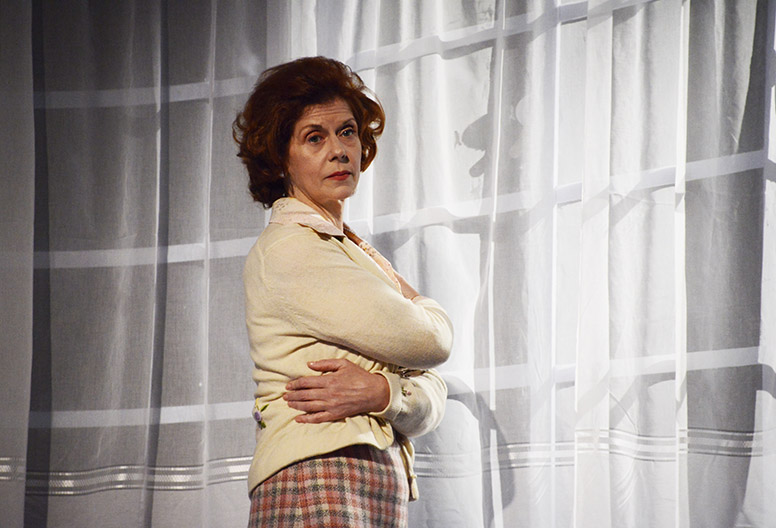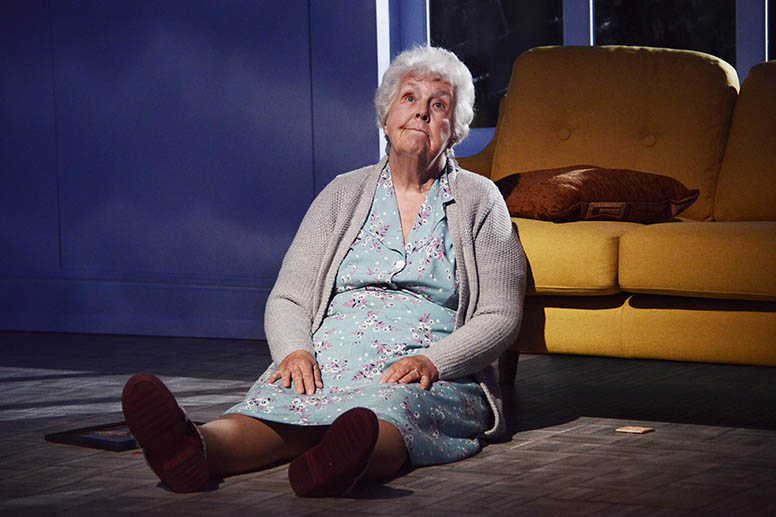When Alan Bennett brought the BBC his scripts for the first series of Talking Heads, the director Stuart Burge came up with a novel way to rehearse them. Bennett had written the six 30-minute episodes as monologues, with each actor directly addressing the camera. Burge thought this unusual approach would need a special kind of intimacy.
His technique was to sit the actors just a foot away and make them look him in the eyes as they said their lines. That was how they spent the three days before filming began. Even a veteran performer like Thora Hird felt exposed. She’d never done anything like it and it took a while before her nerves subsided.
The actors did, however, come to relish that one-to-one connection with the director. They even felt deprived when the cameras started rolling and Burge had to retreat to the back of the studio. His work paid off. The plays, three of which are being revived in August at Cambridge Arts Theatre, quickly became regarded as television classics.
In the 1989 Baftas, Bennett, Maggie Smith and Patricia Routledge were nominated for best actor awards, a prize that was won by Hird for her role in A Cream Cracker Under the Settee. The playwright would go on to recall the special air of silence that had descended on the studio as the entire crew became wrapped up in each story. On one occasion, when they were filming the second series in 1998, a cameraman ended up in tears, so moved was he by Hird’s performance.
For Bennett that was a small victory. He had once looked enviously at his colleagues Peter Cook and Dudley Moore because of their ability to make the band laugh in the 1960 revue Beyond the Fringe. It was something he’d never been able to do, but at long last, he felt he’d matched them:
“At least I’ve made the cameraman cry,” he laughed.

In a recent talk at the National Theatre, Bennett said he had been liberated by this monologue form. “There is more action in Talking Heads than almost any of the plays,” he said. “But the action takes place off stage and off screen in the bits that the audience never sees. There are short breaks and after each break something crucial has happened. Once I’d discovered that’s how they worked, I found this really exhilarating to write.”
In the first series of Talking Heads, Bennett himself starred in A Chip in the Sugar, playing the part of Graham Whittaker, a middle-aged bachelor living happily with his beloved 72-year-old mother until she takes up with a ‘fancy man’ and threatens to throw him out. Like all the monologues, it was rich in observational detail, comic turns of phrase and an aching sadness. On the one hand, Bennett is a tremendously funny writer; on the other, he rarely feels comfortable with a happy ending.
At the Cambridge Arts Theatre, it’s the turn of Karl Theobald (star of Green Wing, Twenty Twelve and Primeval) to take on the role of Graham. In Sarah Esdaile’s production, he’s in good company. Back in 1988, Stephanie Cole was in Soldiering On, the fourth Talking Heads episode. Now the Waiting for God actor is performing A Cream Cracker Under the Settee. Completing the trio is Siobhan Redmond, last seen in Bath in the RSC/National Theatre of Scotland production of Dunsinane and now playing the obsessive letter-writer Miss Ruddock in A Lady of Letters. A terrible snob, she’s forever firing off ill-informed complaints to the authorities until her civilised correspondence turns into harassment. Although the plays started life on television, they have proved an enduring success on the stage.
It started when Bennett directed and performed A Chip in the Sugar in the West End in 1992 in a triple-bill with A Lady of Letters and A Woman of No Importance, both starring Patricia Routledge. The New York Times called them ‘riveting’ and praised their ‘caustic humour and aching loneliness’.
Since then they have been seen in various combinations everywhere from Chichester to Los Angeles. In 2003, they won the New York Drama Critics’ Circle Award for Best Foreign Play as well as a Drama Desk Award for actor Lynn Redgrave.
All this would be impressive enough even without Bennett’s many other phenomenal successes. He cringes to be thought of as a national treasure, but it’s hard to think of a better epithet for the man who has brought us everything from A Private Function to The Madness of George III, from The History Boys to the stage version of The Wind in the Willows. As the theatre director Richard Eyre has said, “there is no playwright who is so liked by the public, so familiar and, like Noël Coward, so quintessentially English.”
Talking Heads is at Cambridge Arts Theatre 17-22 August, 7.45pm. Tickets from £15.

